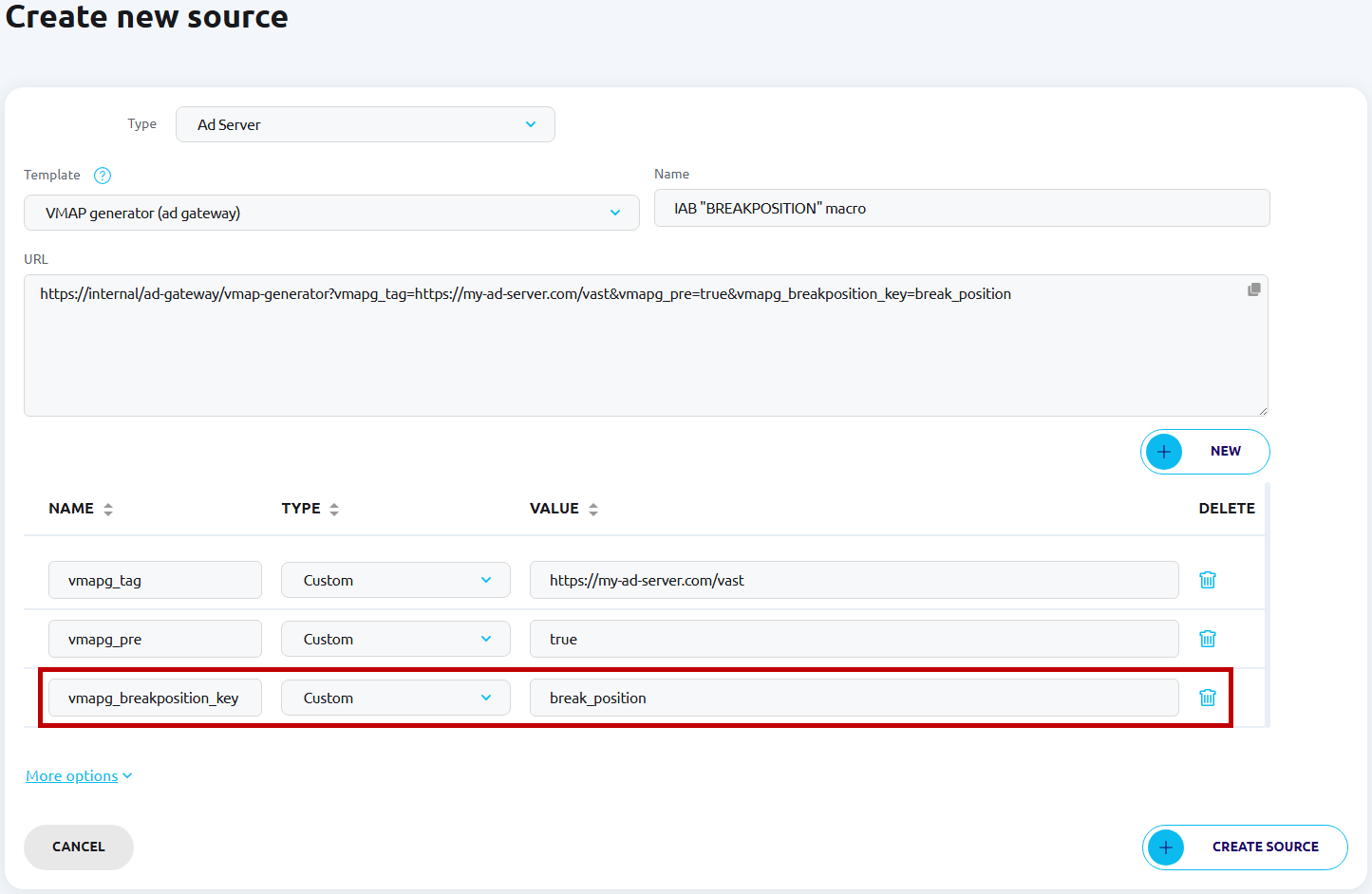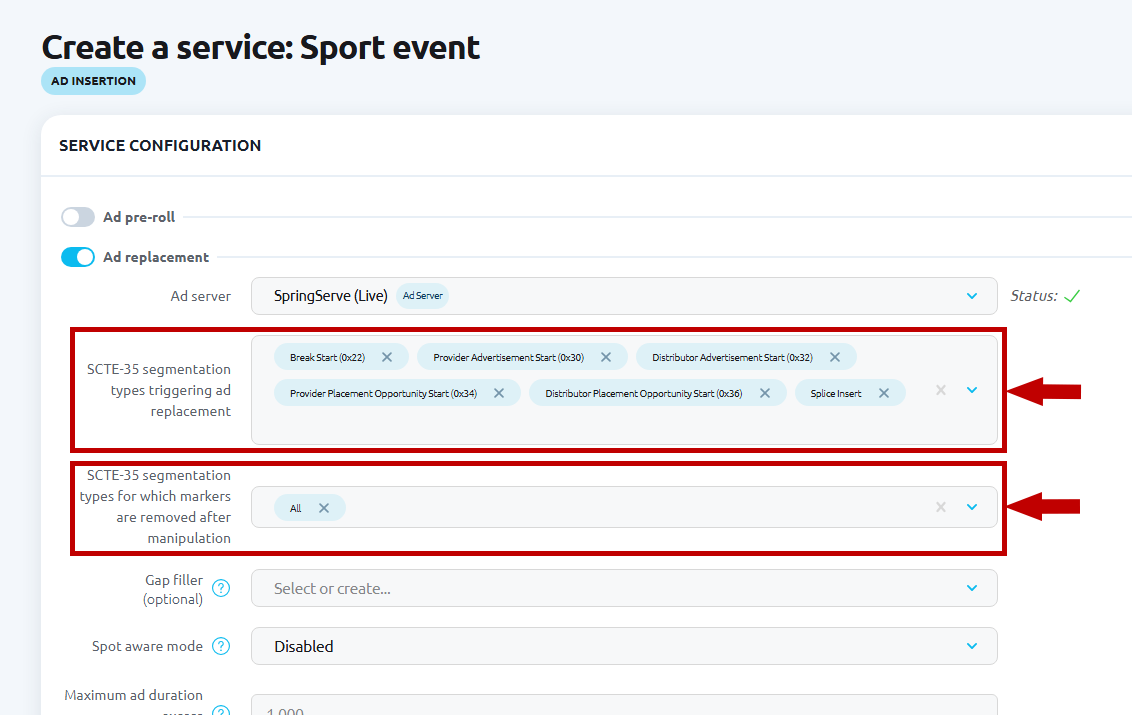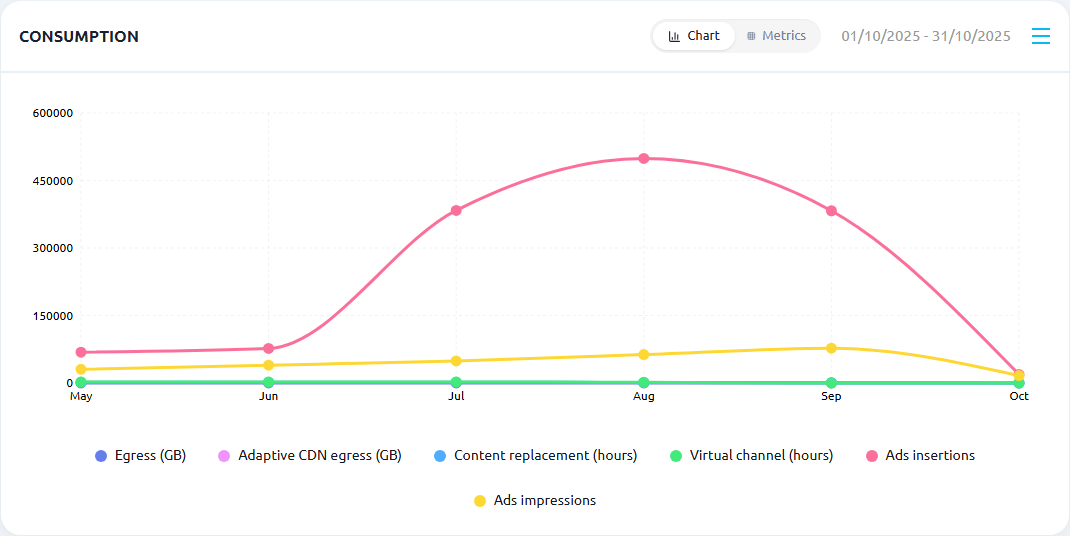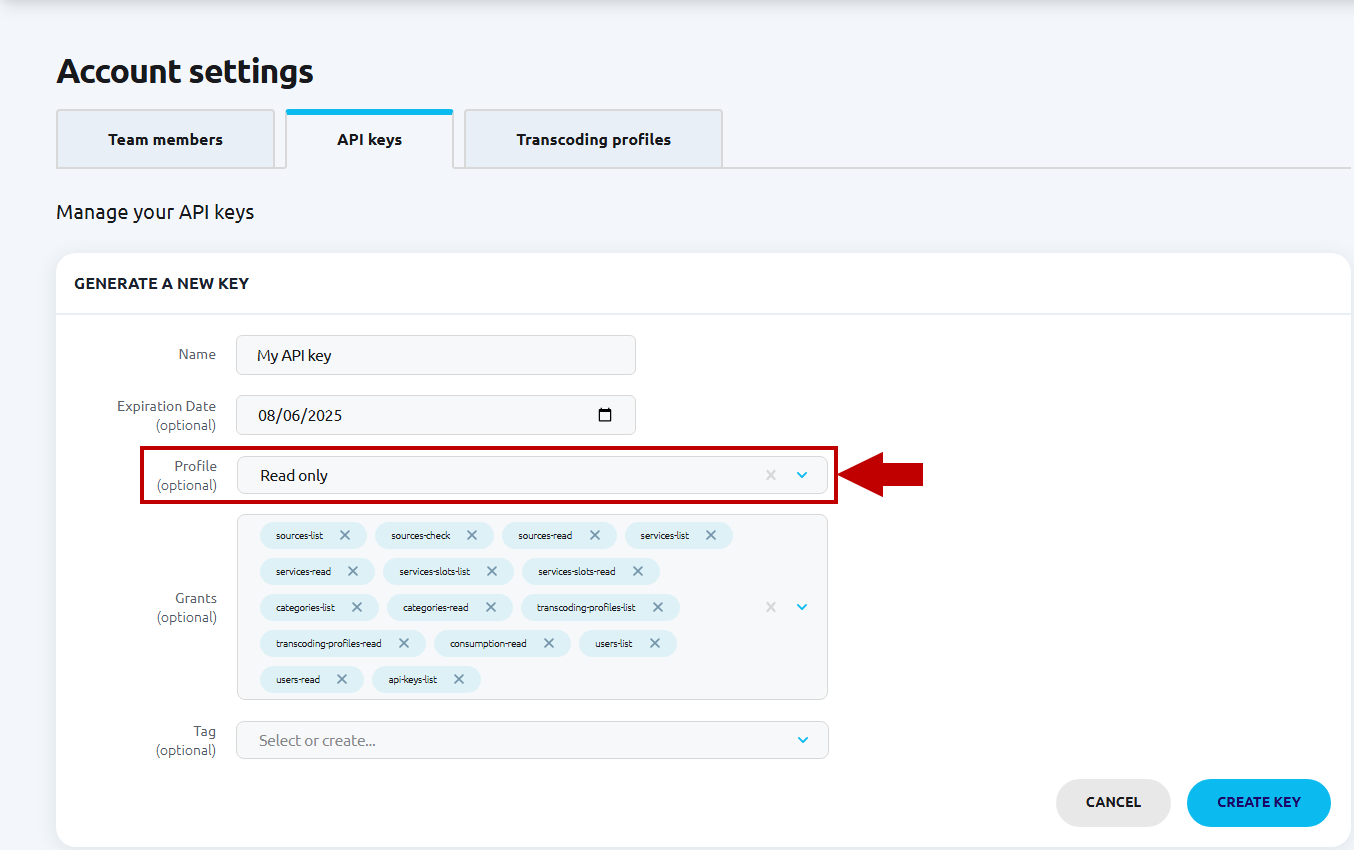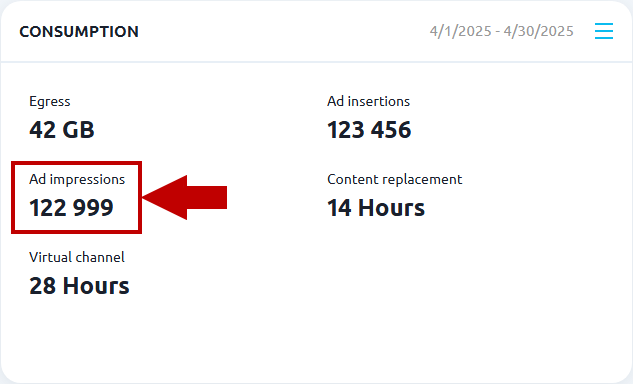2026-01-12
New egressDetails breakdown for egress consumption
We’ve enhanced the consumption API to give you deeper visibility into how your egress is consumed across different traffic categories. You will now find a new egressDetails object in the API response, providing a precise breakdown of egress usage.
The new egressDetails structure includes the following fields:
egressDetails.manifests— egress for manifest files such as%.mpdand%.m3u8egressDetails.segments— egress for segments including%.ts,%.mp4,%.dash,%.m4s,%.cmfv,%.cmfa, and moreegressDetails.transcoding— egress attributed to Just‑In‑Time transcoding (%bpkio-jitt%)egressDetails.ssat— egress associated with SSAT (Server Side Ad Tracking) traffic (%bpk-sst%)egressDetails.other— all remaining egress not matching any of the patterns above
All fields expose values as floats (precision 0.000) and represent the total egress in gigabytes (GB). This new level of granularity helps you better analyze consumption patterns and understand what drives your egress usage.

